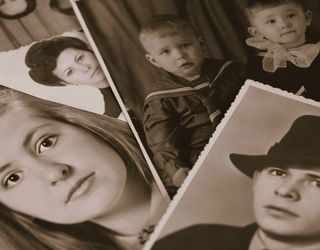Memory
The Fragility of Memory
Have you ever wondered about tips to help you remember?
Posted June 22, 2018

Memory is fallible. Memory is fragile. Memory ends at the present moment. It is everything you have lived, experienced, seen, and felt up until this instant. Everyone holds their own set of memories. Sometimes it might feel unnecessary to stick to the exact or literal truth of what happened, as long as the message or the meaning of the experience is portrayed.
Fiction writers must master the art of creating a vivid picture, but the challenge for memoirists is to determine how and what to remember. Very often, storytelling, whether verbal or written, is a cross between fiction and nonfiction. For example, when people write memoirs, they typically convey the truth—to the best of their knowledge. However, memory plays tricks on us, and sometimes details get blurred. Typically, what we remember is based on how we felt (positive or negative) in response to an experience.
The concept of memory has been on my mind lately. It might have to do with the fact that I’m teaching a memoir-writing class, that I have an aging mother, and because many people have been complaining that they’re questioning the nature and/or clarity of their recollections. Perhaps the omnipresent social media and the necessity for daily multitasking is obscuring our sense of focus. What we forget might not always pertain to important matters—maybe it’s more about mundane subjects, such as the point that you were making in a conversation or where you left your keys.
At times, when we tell stories, we might consciously or unconsciously fill in the gaps as a way to make the narrative hang together; thus, we are merging our memories with our imagination. This can also be called embellishment. A well-known example is the drama surrounding James Frey’s memoir, A Million Little Pieces. Back in 2002, Smoking Gun published an article claiming that Frey had fabricated part of his book. This inspired many people to read it, and, as a result, sales skyrocketed. When he was interviewed about what happened, Frey said that all memoirists alter minor details to increase the literary effect of their stories. His comment ignited a nationwide discussion about truth in memoir, something I had been discussing in my writing workshops for years.
Years ago, I conducted a research project on the interplay between memory and imagination. I compared two memoirs: Eudora Welty’s One Writer’s Beginnings (1995) and Mary McCarthy’s Memories of a Catholic Girlhood. (1972). In her book, Welty compared her inner and outer worlds:
The outside world is the vital component of my inner life. My work, in the terms in which I see it, is as dearly matched to the world as its sharer. My imagination takes its strength and guides its direction from what I see and hear and learn and feel and remember of my living world. But I was to learn slowly that both these worlds, outer and inner, were different from what they seemed to me in the beginning (p. 76).
What I learned is that, for the most part, when memoirists start to write their stories, they set out to be truthful; but often, as in McCarthy’s case, it does not take long before they realize the unreliability of their own memories. McCarthy got lost in a labyrinth of confusing images from her past. She was unsure about the demarcations among her memories, her imagination, and her habit of lying during childhood. She was not even sure if there was a clear boundary.
McCarthy shared her memories of the difficult times before her parents’ deaths, when she was six years old. At the time of the influenza epidemic, her family had to evacuate their home. She vividly describes the hotel in which they all spent an evening and its grim environment. She said that she remembered some of the things about her mother’s death and how all the adults looked worried and uncertain; but she was unsure if she truly remembered all the details, because at the end of her passage she wrote, “. . . as I recall it.” Her inability to check the facts gave her a strong sense of insecurity about her past.
Patricia Hampl, in her essay “Memory and Imagination” (2002), said that writers pen memoirs to find out what they don’t know, in an attempt to not only find themselves but also to find (and share) a world.
Here are some tricks to jog your memory if you’re having trouble remembering something:
· Engage in mindfulness, and be consciously aware as you go about your day.
· Find photos or objects relating to people or experiences you’re trying to recall.
· Speak to others who have gone through similar experiences.
· Reminisce regularly.
· Listen to music that might evoke certain memories.
· Make a memory box—include a chart for the years of your life, and try to recall what you were doing during each month of each year.
Most important, continue to engage in activities that are stimulating, inspiring, and that lead to the creation of new memories.
References
Hampl, [2002]. “Memory and Imagination. In The Fourth Genre by R. L. Root and M. Steinberg, Eds. New York, NY: Longman.
McCarthy, M. (1972). Memories of a Catholic Girlhood. Orlando, FL: Harcourt, Inc.
Welty, E. (1995). One Writer’s Beginnings. Cambridge, MA: Harvard University Press.




